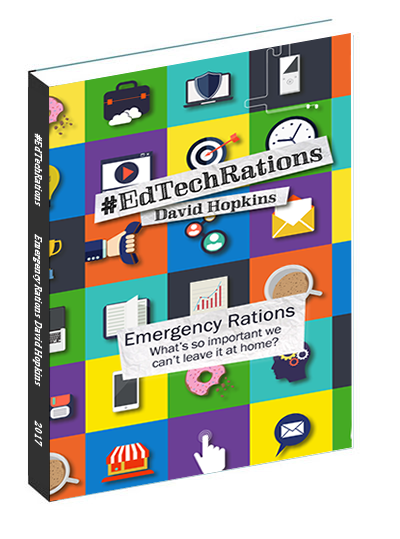Blackboard Users Conference #durbbu: The Learning Ecology
 After several years of trying to get the UK Blackboard Users Conference it seems 2013 (and the 13th conference – it’s a teenager!) is my lucky year. The theme for the 13th Annual Durham Blackboard Users’ Conference is ‘Make Do or Spend’ with presentations looking at how colleges and universities are responding to pressure:
After several years of trying to get the UK Blackboard Users Conference it seems 2013 (and the 13th conference – it’s a teenager!) is my lucky year. The theme for the 13th Annual Durham Blackboard Users’ Conference is ‘Make Do or Spend’ with presentations looking at how colleges and universities are responding to pressure:
- Increasing consumerist attitudes amongst students, and
- Severe fiscal constraints.
What I hope to get from the 2 day conference, apart from the networking, product/Blackboard development, Bb mobile progress, conference dinner, travel, etc., is insight into how individuals and Institutions are dealing with, and adapting, to the changing conditions within the UK FE/HE market. How are these changes are affecting approaches to learning management systems (Blackboard) and can these changes be sustained or modified if the conditions ‘worsen’? From the conference booklet this is
“.. at a time when the technologies that support learning are changing – we’ve seen mobile trying to go mainstream, institutions dipping their toes into the world of MOOCs, and apps for almost everything.”
The first keynote was given by Professor Allison Littlejohn, from Glasgow Caledonian University, with the title of “The learning ecology: why the promise of an economy of scale has not been achieved”. Starting the conference off by going straight to the heart of its theme Professor Littlejohn, by saying we should be generating appropriate and scalable resources to support use, instead of multiple versions all doing the same thing.
From Professor Littlejohn:
- Sector/Institution focus belies what is happening outside and around you – ‘look up’ and see, collaborate, crowdsource, share, consult, and network.
- Changes to working practices is helping to facilitate this kind of working patterns: “networked innovation”.
- “Every graduate from the UK HE sector has the ability, confidence and mindset to plan and implement his/her own learning pathway, to achieve his/her learning outcome.”
- “Learning together through objects of activity” interesting, backed up with question “do inter-relationships change in pone, unstructured environments?
- MOOC mentioned but questioned about the learning in unstructured, yet networked environments.
- How do students learn in an unstructured learning environment?

- Collective knowledge cycle: connect to a resource/person; consume; create new knowledge; contribute new knowledge back to collective. (@sharonflynn)
- ‘Charting’ occurs when each learner maps his learning pathway through planning, implementing and reflecting on learning goals.
- The difference between an x-type MOOC (highly structured) and a c-type MOOC (connectivism).
- Discussion around question “should networked knowledge creation be a mainstream approach to learning in universities?” concentrated, among my colleagues from Leicester, was “define mainstream?”
- How can learners be prepared? SRL (self-regulated learning) MOOC study hypothesis: “users who display a high degree of self-regulation …” Zimmerman www.gcu.ac.uk/academy/srl-mooc/
- How can learners be prepared?
- Throughout all of this, does the relationship change between academics (and therefore the Institution itself, including student support, administration, etc.) and students (attending or distance learners?). Each student will have different needs, and therefore different levels of requirement, based on attendance, background, and experience.
- Should we ‘Make Do or Spend?’
Professor Littlejohn concluded with the phrase “To move forward we need to do some ‘unlearning’.”
If I missed anything from Professor Littlejohn’s keynote, or you have comments to add, please leave a comment below.




















